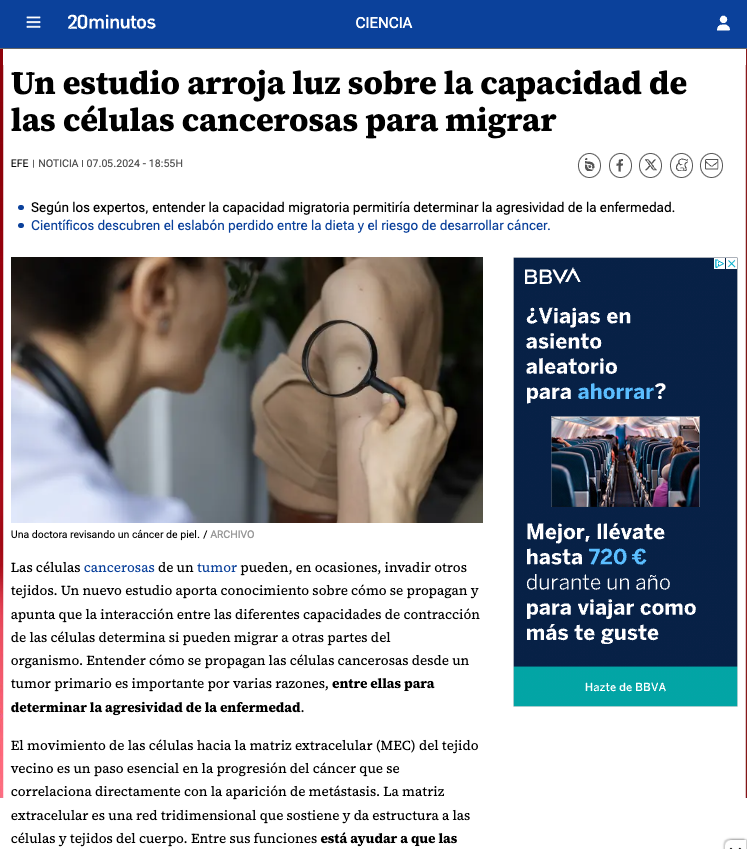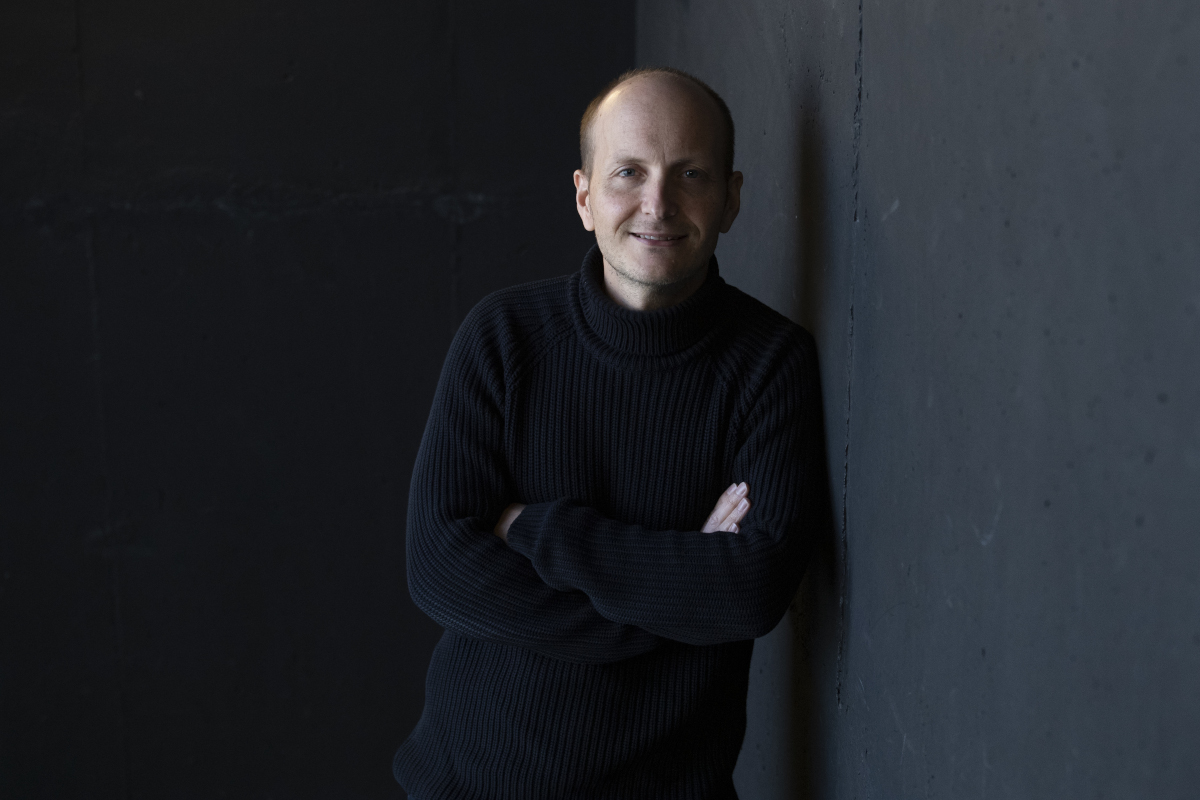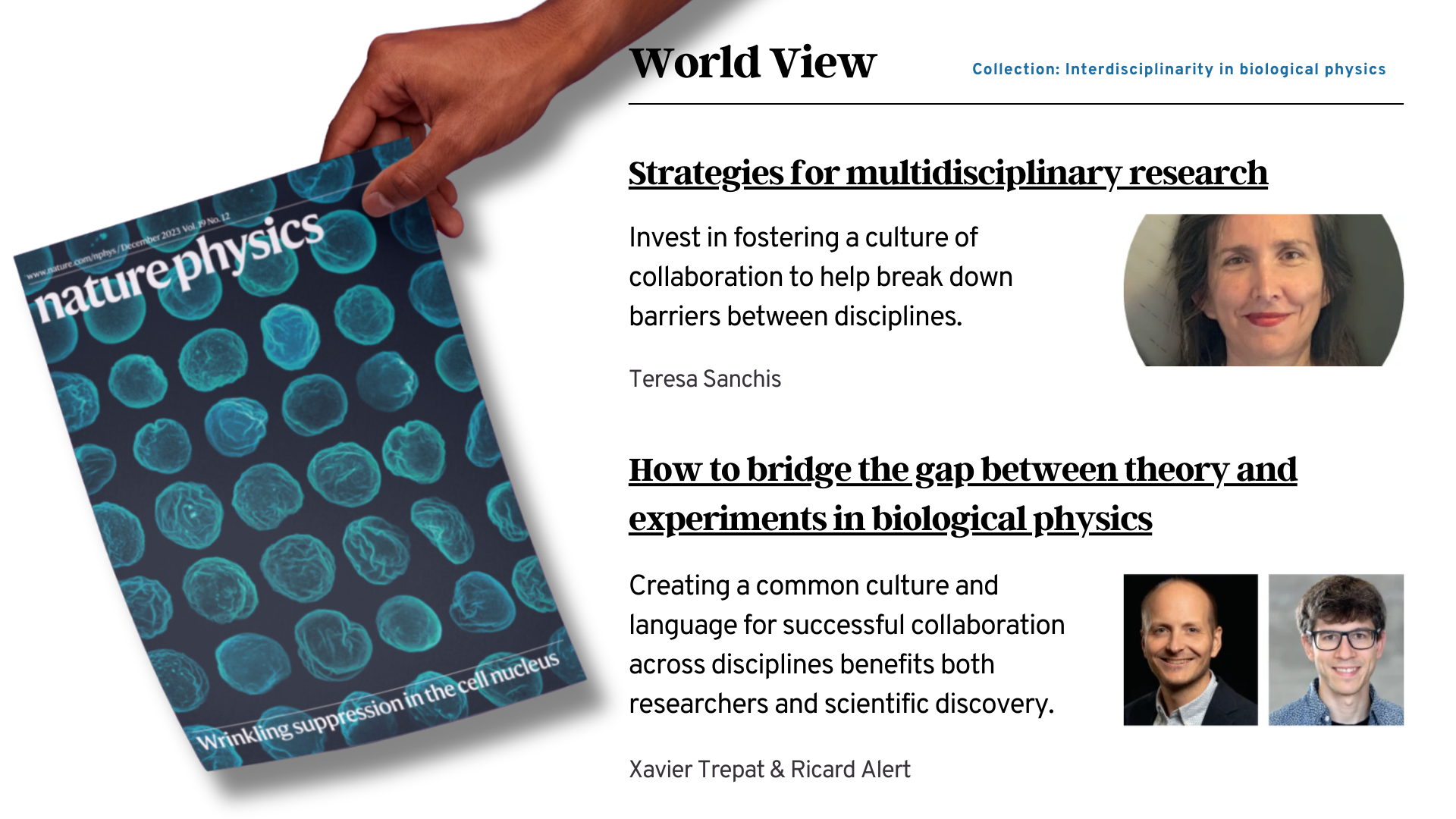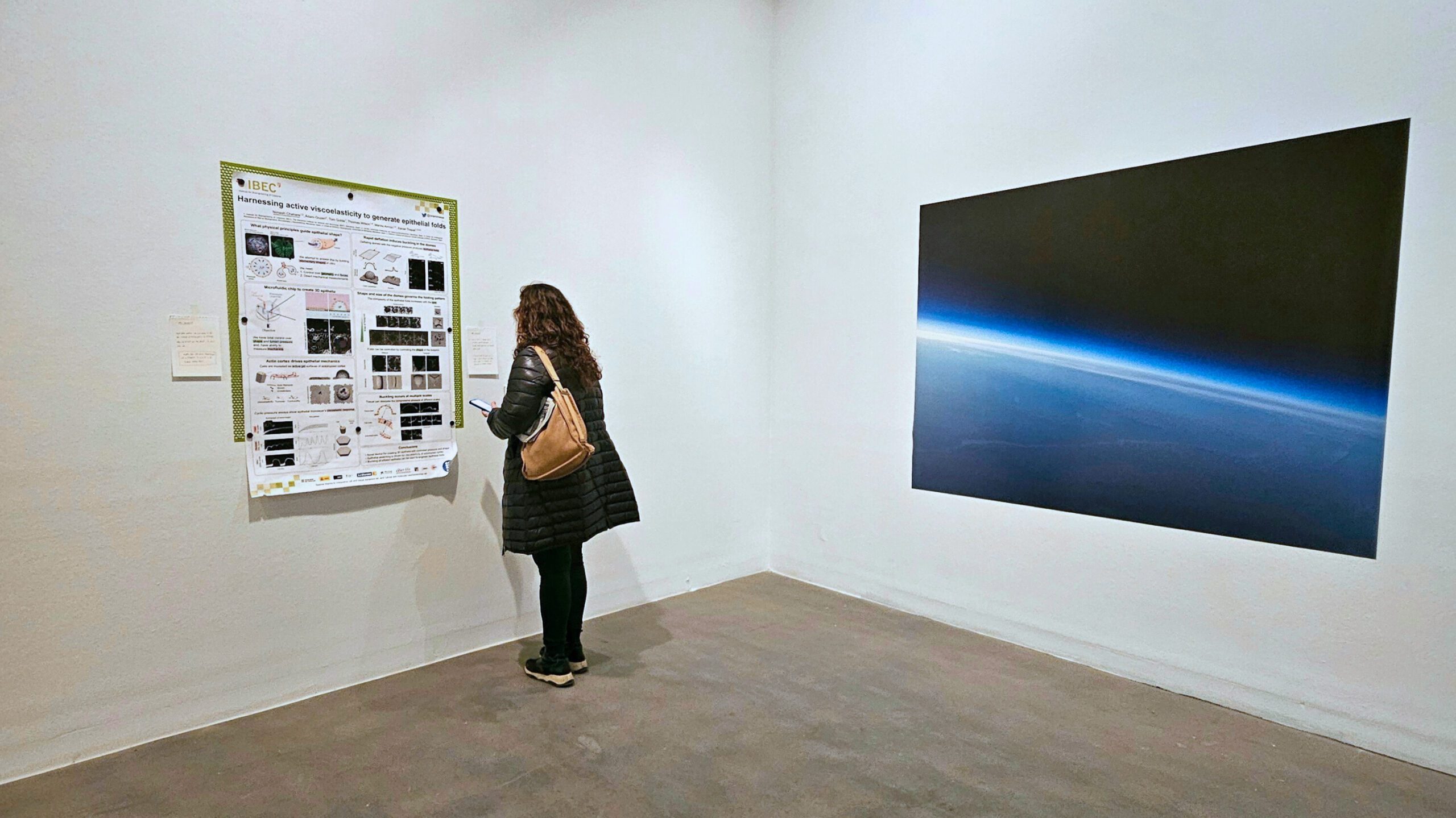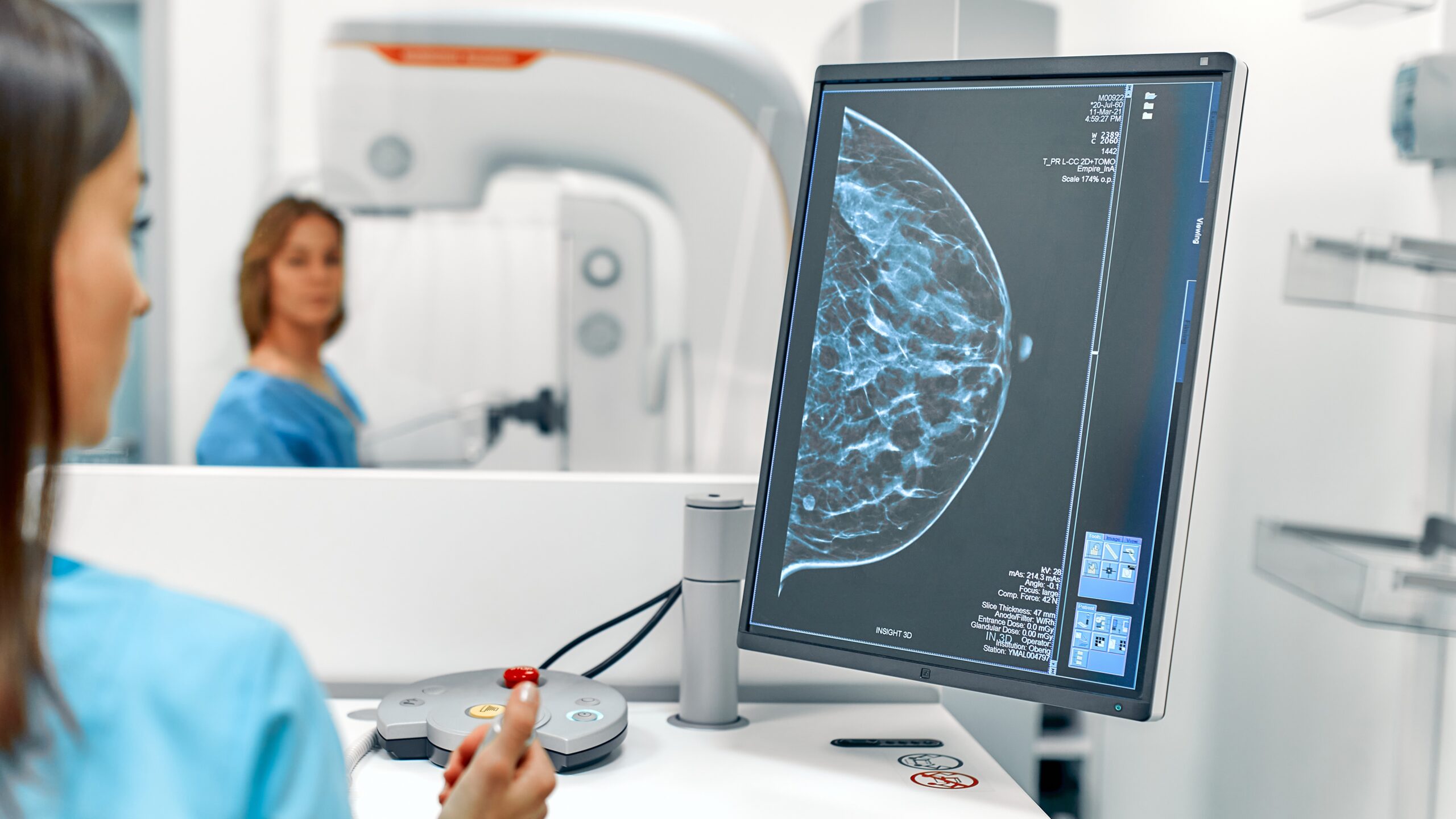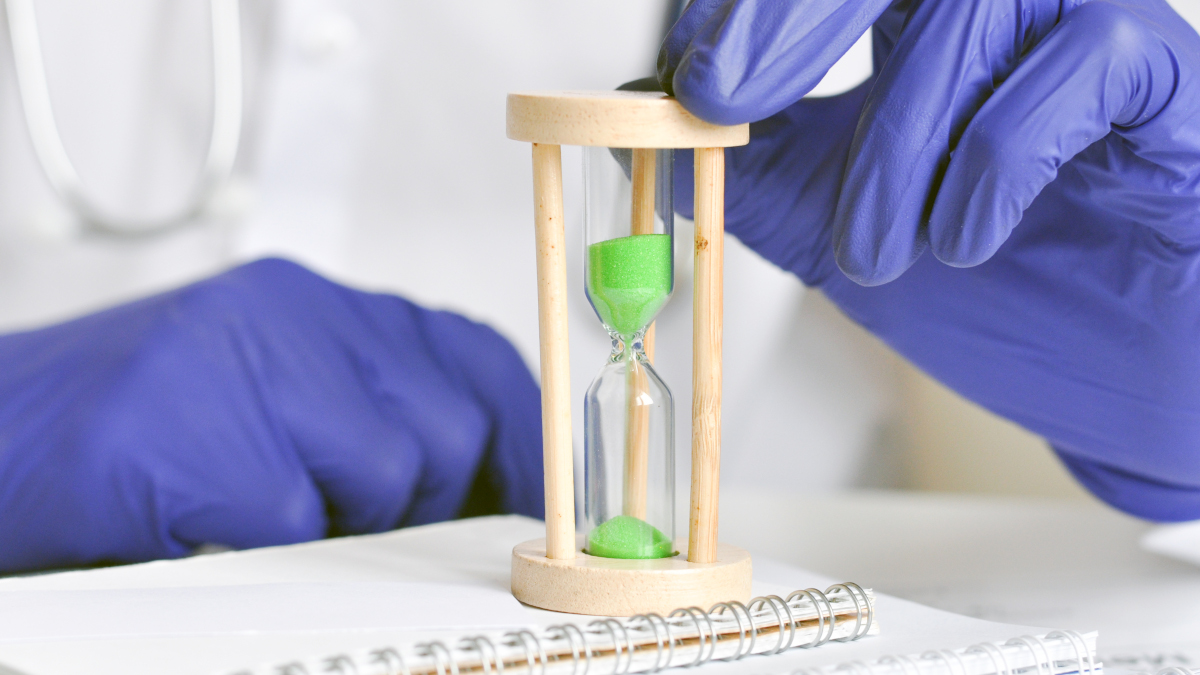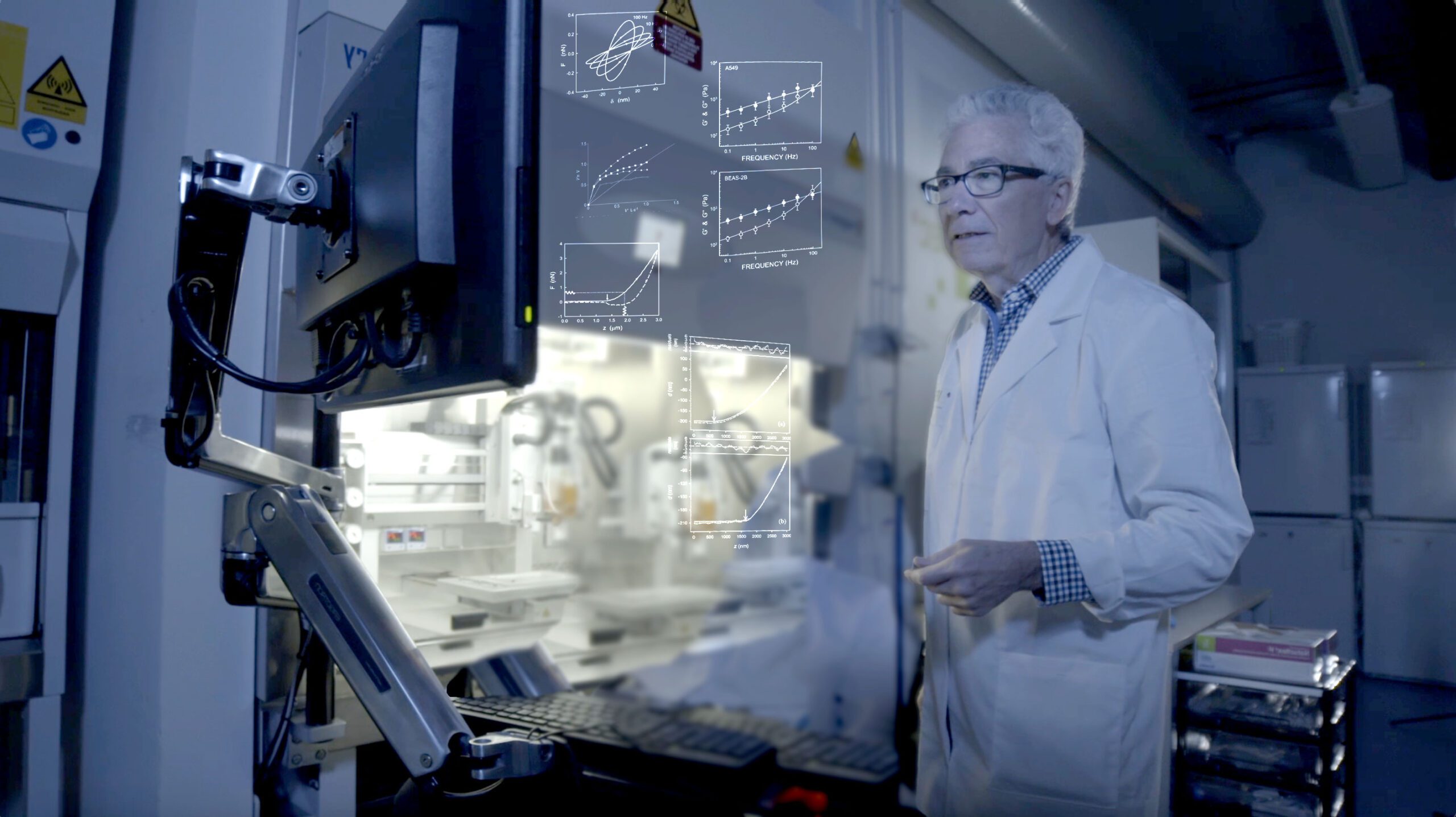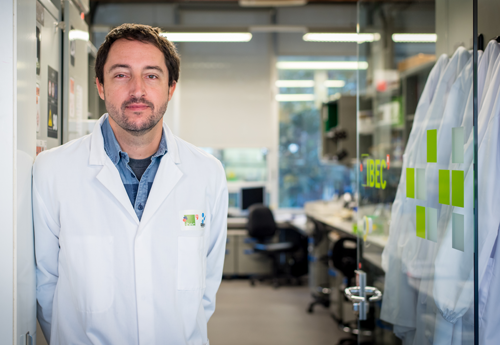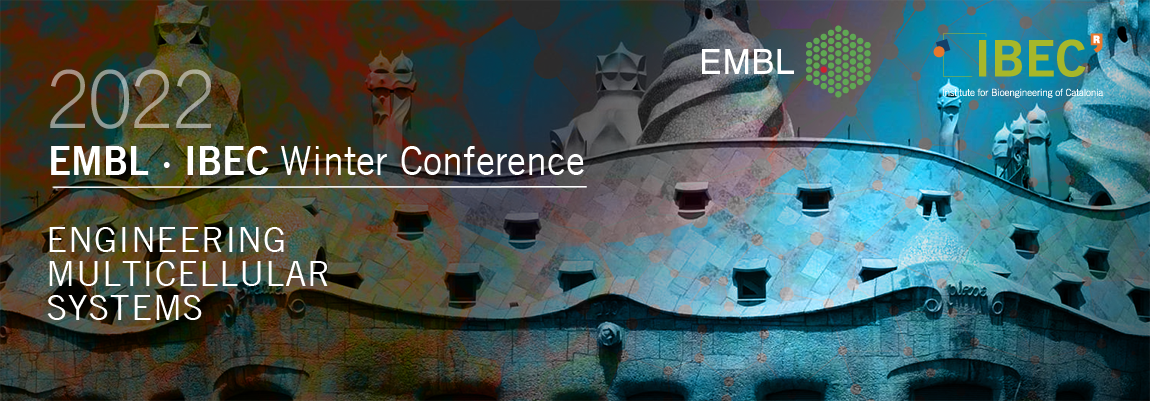Xavier Trepat
Group leader
Xavier Trepat Wins the Lilly Foundation Award for Biomedical Research 2024
IBEC ICREA Professor Xavier Trepat has been awarded the Lilly Foundation Award in the category of preclinical research. With this accolade, the Fundación Lilly acknowledges Trepat’s work, distinguished by the application of techniques and concepts from physics to the health sciences.
The interdisciplinarity of IBEC showcased in the opinion section of Nature Physics
Teresa Sanchis and Xavier Trepat, members of IBEC, have authored opinion pieces in the ‘World View’ section of Nature Physics. Both articles underscore IBEC’s dedication to scientific excellence, the promotion of diversity, and the cultivation of an environment conducive to collaboration. They also highlight the relevant role of IBEC at the international level in multidisciplinary research.
Bioengineering Becomes Art at the Antoni Tàpies Museum
An installation featured in the exhibition “A=A, B=B” at the Antoni Tàpies Foundation will provide live access to the laboratories of IBEC. A window from which visitors will have the opportunity to see how researchers carry out their research projects, as if it were a genuine performance of scientific innovation.
Preventing the tissue’s response to stiffness may be key to slowing the progression of breast tumors
A study led by the Institute of Bioengineering of Catalonia demonstrates that laminin, a protein present in breast tissues, prevents the effects of stiffening, protecting cells against tumor growth. While the mechanism has been demonstrated in vitro, persuasive indications suggest its potential applicability in vivo, as observed in patient samples.
The internal clock of our cells is influenced by mechanical forces
IBEC researchers uncover how mechanical forces disrupt the circadian clock in cells, the mechanism governing daily physiological changes. The finding may help to better understand aging and specific diseases, like … Read more
Daniel Navajas: 30 years dedicated to mechanobiology
Last May 5, on the occasion of Professor Daniel Navajas’ retirement, the IBEC held the symposium Before Mechanobiology had a name. The event paid tribute to the IBEC researcher’s exciting … Read more
Cancer cells move to rigid environments like droplets
Researchers from the Institute of Bioengineering of Catalonia (IBEC) and the University of Barcelona (UB) uncovered a similarity between liquid droplets and cell groups, revealing that surface tension helps cells to … Read more

